Frameless dump trailers are an essential component in the hauling and construction industries, combining functionality with efficiency. To fully appreciate the benefits and applications of frameless dump trailers, we delve into their structure, types, advantages, and more. This guide will unpack the nuances of frameless dump trailers that set them apart from conventional options, ensuring a well-rounded understanding for potential buyers and users.
Table of Contents
- Understanding the Basics of Frameless Dump Trailers
- Key Features and Benefits
- Types of Frameless Dump Trailers
- Comparative Analysis: Frameless vs. Framed Dump Trailers
- Best Practices for Maintaining a Frameless Dump Trailer
- How to Choose the Right Frameless Dump Trailer for Your Needs
- Conclusion: Is a Frameless Dump Trailer Right for You?
Understanding the Basics of Frameless Dump Trailers
A frameless dump trailer, as its name suggests, lacks a traditional frame structure. Instead, the body of the trailer is designed to be more streamlined, often made from high-strength materials, which allows for increased cargo capacities and enhanced maneuverability. Their design typically incorporates a heavy-duty Tapered Body that functions efficiently in unloading materials, making them widely sought after in construction sites, agricultural work, and landscaping.

Key Components of a Frameless Dump Trailer
- Trailer Bed: The bed is made from high-grade steel or aluminum, which enhances strength while reducing weight.
- Hydraulic System: Most frameless dump trailers use a hydraulic lifting mechanism to facilitate the dumping process.
- Axles and Suspension: Designed for heavy loads, these components ensure stability and smooth transport even on uneven terrains.
- Tarp System: Many frameless models come equipped with tarp systems that regulate load movement and prevent spillage during transit.
Key Features and Benefits
Frameless dump trailers stand out for their myriad advantages, which include:
- Increased Payload Capacity: The absence of a frame allows more space for cargo, resulting in the ability to transport larger loads compared to traditional framed trailers.
- Improved Stability: The design enables lower centers of gravity, leading to better road handling, especially when navigating tight turns or uneven surfaces.
- Enhanced Durability: Built with robust materials, frameless dump trailers are often more resistant to wear and tear, which translates into longer lifespans and reduced maintenance costs.
- Simplified Loading and Unloading: The design allows for easier and quicker emptying of materials, especially useful in fast-paced working environments.
- Versatile Applications: They can be used for a variety of dumping needs, including gravel, sand, waste, and debris transport.
Types of Frameless Dump Trailers
Understanding the different types of frameless dump trailers is vital as it allows for choosing the most appropriate option based on specific needs. Here are the common variants:
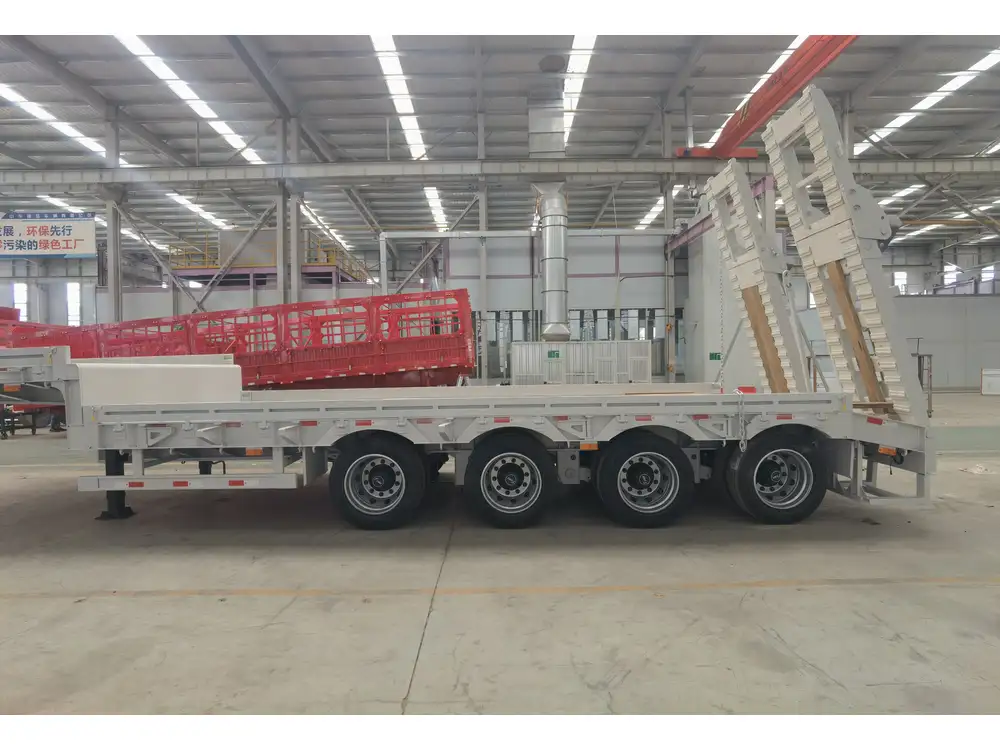
1. End Dump Trailers
End dump trailers are designed to discharge their loads from the rear. They offer the benefit of precise unloading but may require careful maneuvering, especially on sloping surfaces where the potential for tipping exists.
2. Side Dump Trailers
Ideal for loose materials, side dump trailers unload their contents from the side through hydraulic action. This makes them particularly effective in applications that require spreading materials evenly, such as levelling dirt or gravel.
3. Walking Floor Trailers
These trailers utilize a unique floor system that allows cargo to be unloaded without tilting the trailer. The walking floor system is advantageous for delicate materials or loads that must remain stable during the unloading process.
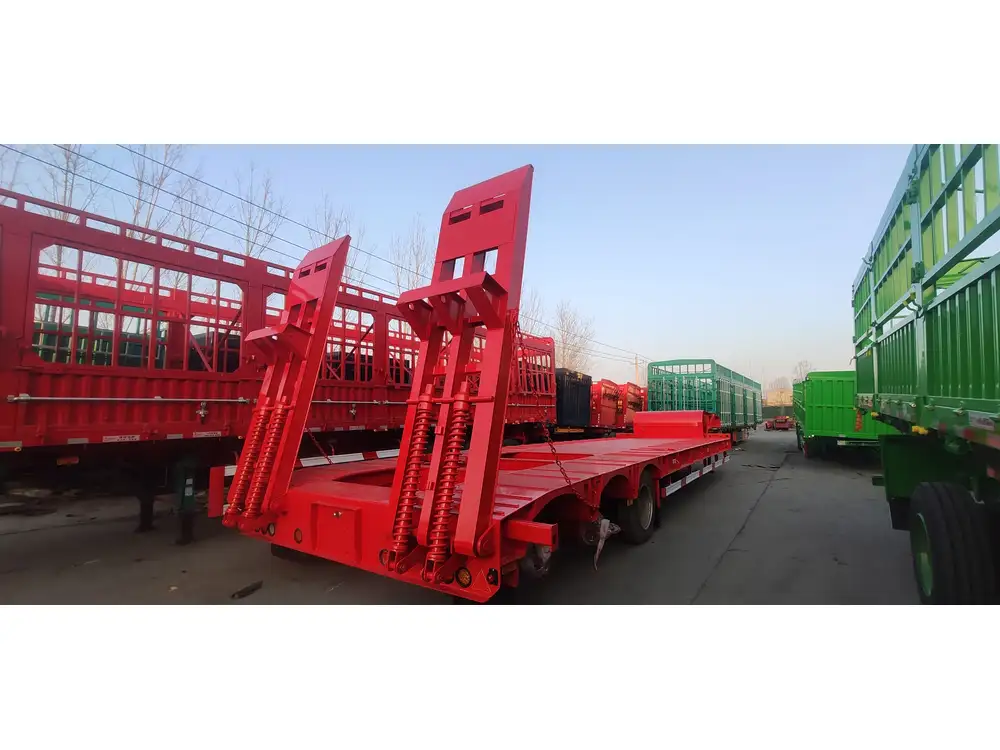
4. Lo-Boy Trailers
Lo-boy trailers maintain a lower profile, enhancing stability and making them suitable for carrying heavy equipment alongside bulk materials.
Comparative Analysis: Frameless vs. Framed Dump Trailers
It’s essential to understand how frameless dump trailers stack up against their framed counterparts to make informed purchasing decisions. Here’s a structured comparison:
| Feature | Frameless Dump Trailer | Framed Dump Trailer |
|---|---|---|
| Weight | Lighter | Heavier |
| Payload Capacity | Higher | Lower |
| Durability | More durable | Less durable |
| Unloading Method | Quick unload | Requires more time |
| Stability | Improved handling | Can tip easier |
| Maintenance | Lower costs | Higher costs |
| Structural Complexity | Simpler design | More complex |
This table clearly delineates the differences, enabling potential buyers to consider which features align best with their operational needs.
Best Practices for Maintaining a Frameless Dump Trailer
To ensure the longevity and optimal performance of a frameless dump trailer, regular maintenance is critical. Here are some best practices to consider:
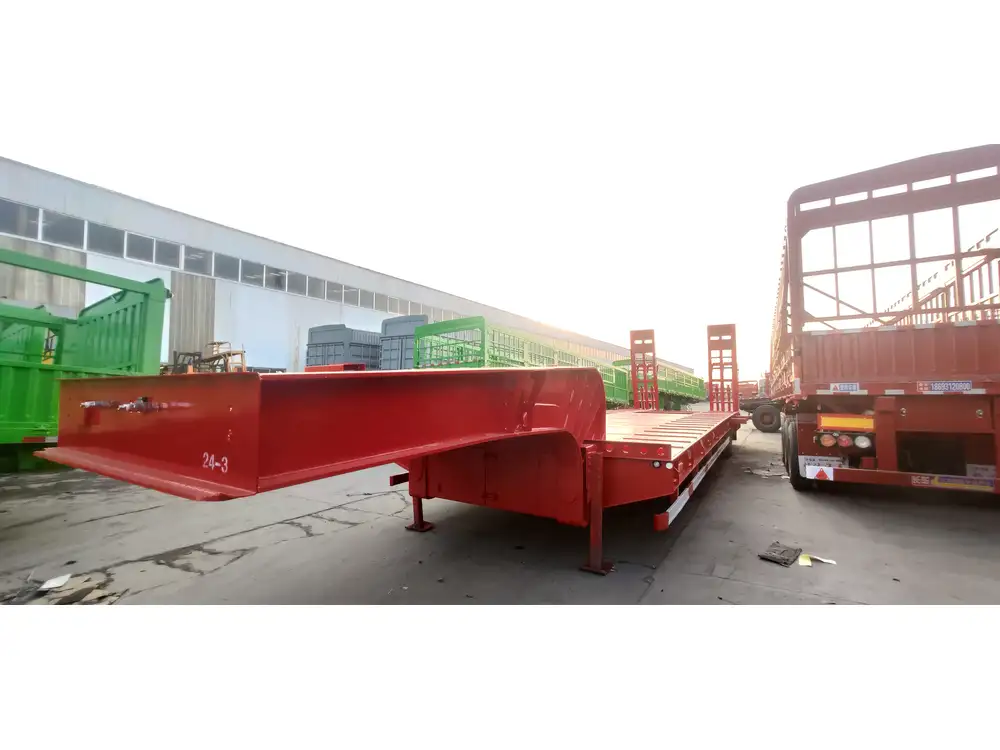
1. Routine Inspections:
- Check the Hydraulics: Regularly inspect hydraulic cylinders and hoses for leaks or wear.
- Tire Maintenance: Ensure that tires are inflated to the recommended pressure and check for uneven wear.
2. Cleaning:
- Post-Use Wash: Clean the trailer after every use to remove debris, which can cause rusting and wear.
- Floor Maintenance: Pay special attention to the trailer bed to avoid buildup and facilitate the unloading process.
3. Lubrication:
- Grease Moving Parts: Regularly lubricate hinges, axles, and any areas subject to friction.
- Check Electrical Systems: For trailers with lighting systems, ensure all connections are secure and functional.
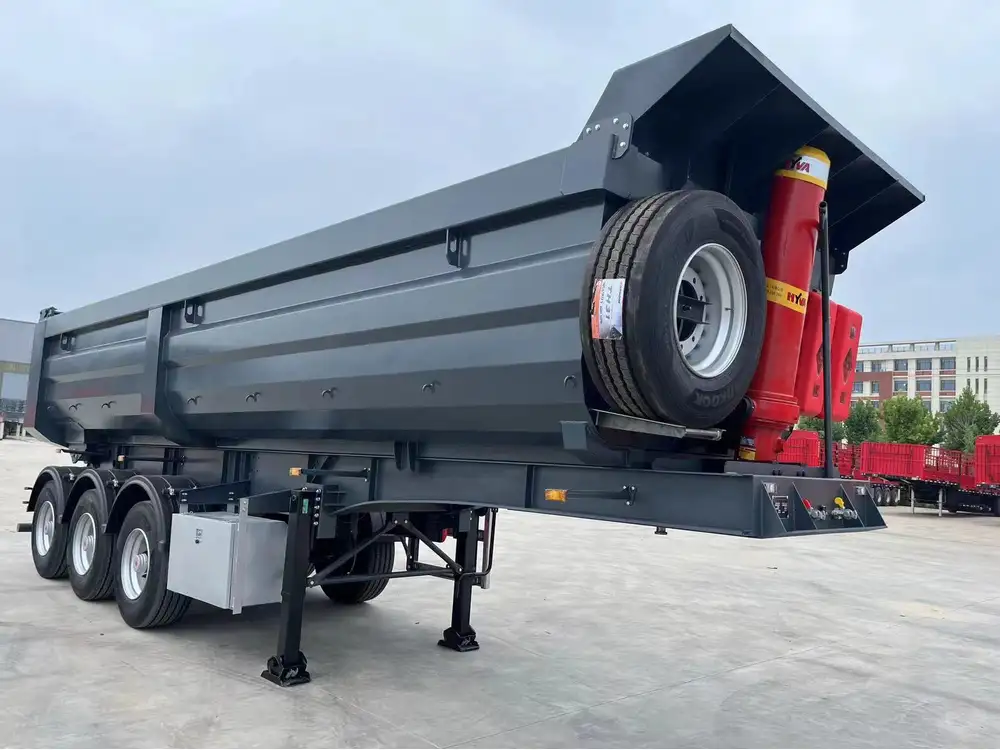
4. Safe Loading Practices:
- Weight Distribution: Distribute loads evenly to reduce strain on the trailer and improve stability.
- Secure Loads: Use tarps and straps to secure materials, minimizing movement and potential damage during transit.
By following these practices, operators can maximize the efficiency and lifespan of their frameless dump trailers, leading to better returns on their investment.
How to Choose the Right Frameless Dump Trailer for Your Needs
Selecting the appropriate frameless dump trailer hinges on several critical factors. Here is a structured approach to facilitating the decision-making process:
1. Define Your Needs:
- Payload Capacity: Assess the maximum weight you intend to transport regularly.
- Terrain: Consider the types of terrain you’ll navigate; this impacts stability requirements.
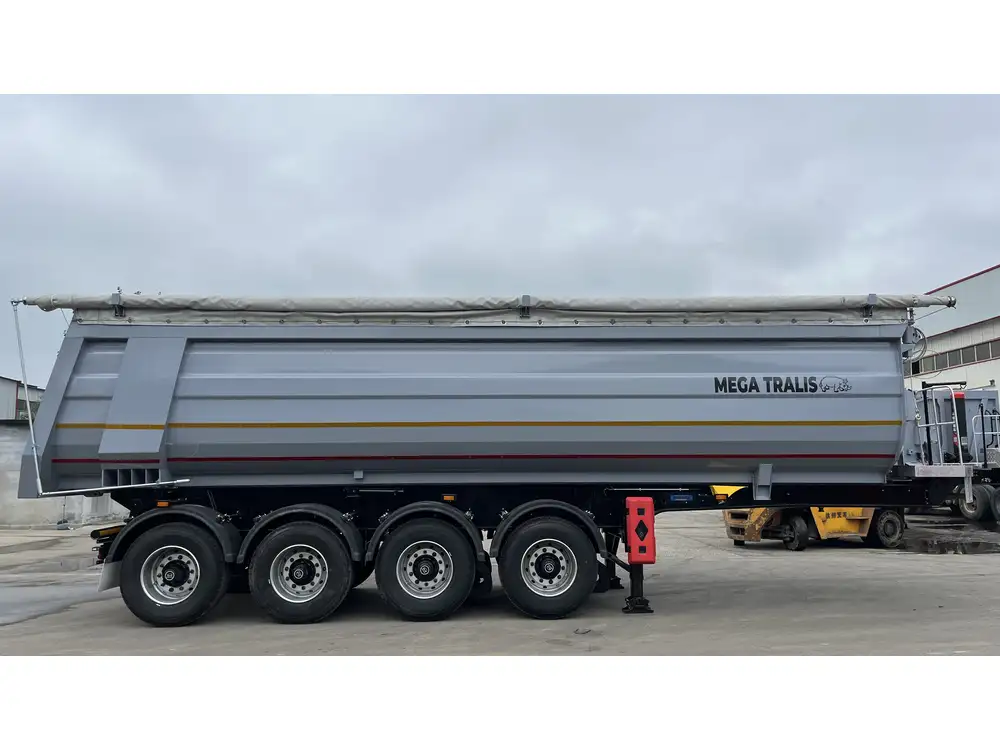
2. Research Specifications:
- Material Quality: Investigate the materials used in the trailer’s construction—steel vs. aluminum options can drastically affect longevity and weight.
- Hydraulic Systems: Examine the capabilities of the hydraulic system, as this affects performance during loading and unloading.
3. Price vs. Value:
- Asses Total Cost of Ownership: Don’t just look at the initial price; consider operational costs, maintenance, and potential resale value.
- Financing Options: Many manufacturers offer financing options, which can help manage upfront costs.
4. Manufacturer Reputation:
- Seek Reviews: Look into customer testimonials and reviews to gauge the reliability of the manufacturer.
- Warranty and Support: Ensure that they provide robust warranty terms and responsive customer support.
By navigating these factors thoughtfully, buyers can align their choice with operational demands, ultimately leading to improved productivity and satisfaction.
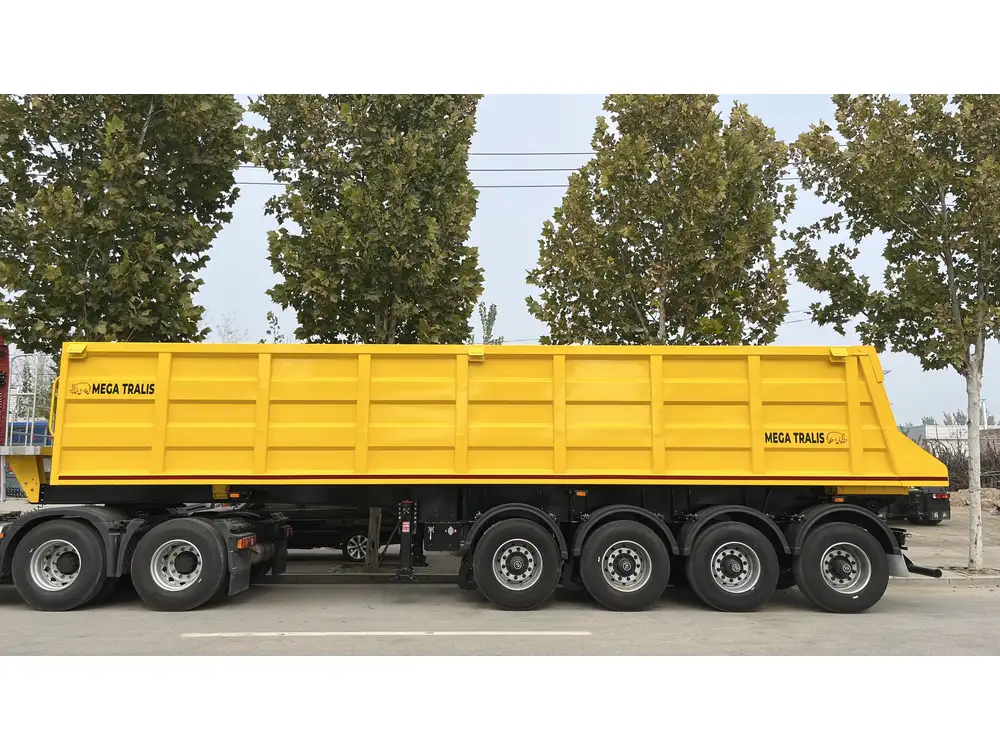
Conclusion: Is a Frameless Dump Trailer Right for You?
In conclusion, frameless dump trailers present a compelling option for anyone in need of an efficient, durable, and versatile hauling solution. Their design dramatically enhances payload capacity, stability, and durability, making them particularly advantageous in the construction, agricultural, and landscaping sectors.
Whether you are faced with the decision of selecting the right trailer for heavy materials or weighing the advantages of maintained performance over the long term, a deeper understanding of frameless dump trailers equips you with the knowledge to make an informed choice. With careful consideration of your needs and proactive maintenance strategies, a frameless dump trailer could be a pivotal investment that elevates your operational efficiency.
Embracing the potential of frameless dump trailers can transform how you approach transporting materials, and with diligent research and careful decision-making, you’re on your way to enhancing your hauling operations.



